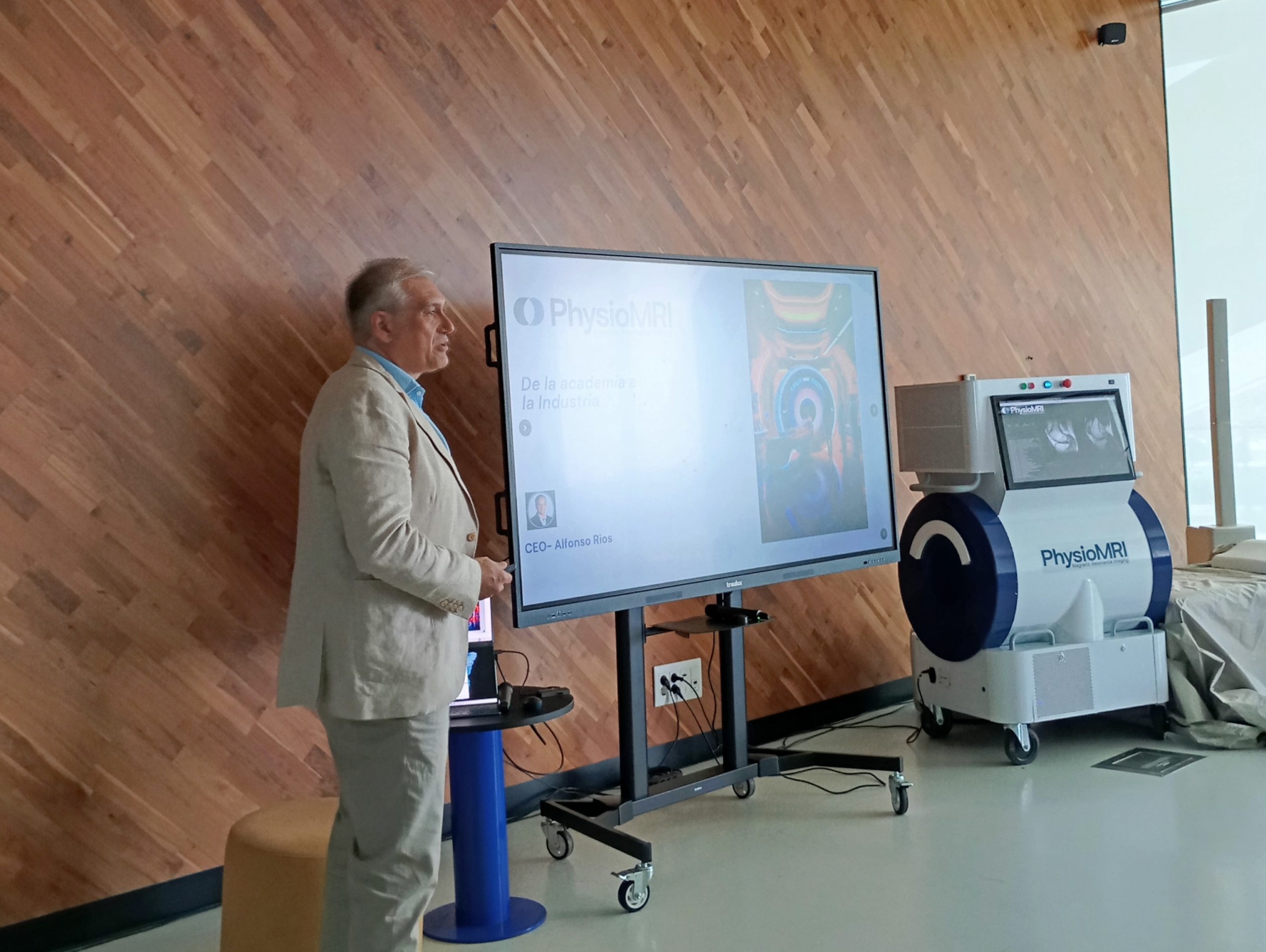The first portable magnetic resonance imaging device, developed with technology from the Valencian company and backed by prominent investors such as Claver and Rodrigo del Prado, is expected to go on sale in 2027
The Spanish company PhysioMRI, specialized in research and development of portable magnetic resonance imaging (MRI) technologies, has been officially launched with its innovative tech-medical initiative, aiming to radically transform access to and application of MRI in clinical, research, and hard-to-reach settings, such as field hospitals.
The launch event, held at the Veles e Vents building in Valencia, brought together prominent professionals from the medical, technological, and scientific fields, as well as project investors. Among the attendees were Rodrigo del Prado, founder of the Spanish tech brand BQ, Víctor Claver, former player of Valencia Basket and the Spanish National Basketball Team, and Dr. Luis Martí Bonmatí, Director of the Medical Imaging Clinical Area at the University and Polytechnic Hospital La Fe in Valencia. Four of PhysioMRI’s co-founders also took part in the event: Alfonso Ríos (CEO), José María Benlloch, Joseba Alonso, and Jonatan Fatelevich.
During his speech, Alfonso Ríos addressed several key aspects of the company, such as financial management — where audits and project verification are conducted — and the MRI manufacturing and production environment, emphasizing that “this is the place where all the reception and assembly processes take place.” He also pointed out that all the MRI machines they’ve built so far “function the same way.” Furthermore, he highlighted the Quality System division, where certifications are obtained, including the official certification required for the manufacturing of medical devices.
In his turn to speak, José María Benlloch stated: “We are looking at a technology that can bring MRI to every clinic, every hospital, every corner of the world where it is currently inaccessible. This is not an evolution — it’s a revolution in access to medical diagnostics.”
Meanwhile, Joseba Alonso offered a more detailed perspective on the development of the MRI system. He explained how this new generation of portable scanners integrates advanced ultra-low magnetic field technologies, custom acquisition electronics, and image reconstruction algorithms based on artificial intelligence. Alonso also highlighted another vital feature of PhysioMRI’s new machines: portability. “What would be needed to transport the MRI to places like a village in Africa? You’d need a trailer, anchors, stabilizers, or a ramp to lower the device and perform MRIs outside the trailer itself.”
During Alonso’s presentation, a technical demonstration of the functional prototype of the medical device was carried out, sparking great interest among attendees, especially due to its compact design, intuitive interface, and ability to acquire clinically relevant images in a matter of minutes.
Lastly, Jonatan Fatelevich, who oversees the strategic and commercial side of the project, stated: “We want to place our MRI in every clinic in the world.” He also emphasized their goal to adopt a “pay-per-use” model, referring to the payment system used for photocopiers, at a much lower cost than traditional MRI scans. Based on this strategy and calculations, he noted that if a clinic performed 10 MRIs per day for 22 days a month, the investment in the medical device would be recovered in about six months.
In this way, PhysioMRI reaffirms its position as a European leader in portable MRI technologies, betting on disruptive innovation in the service of healthcare and science.

